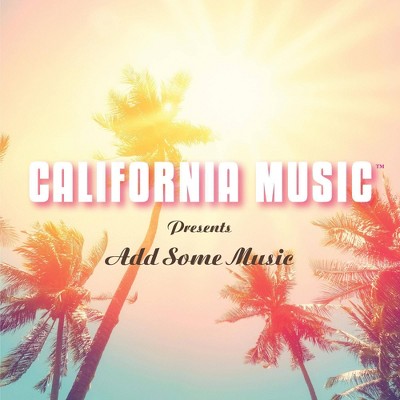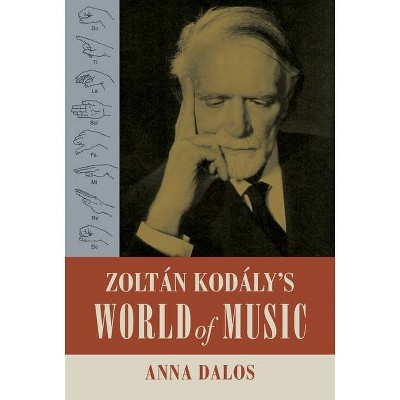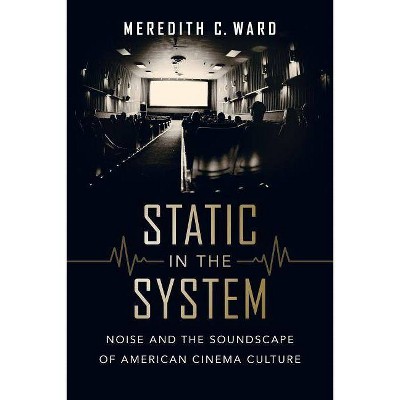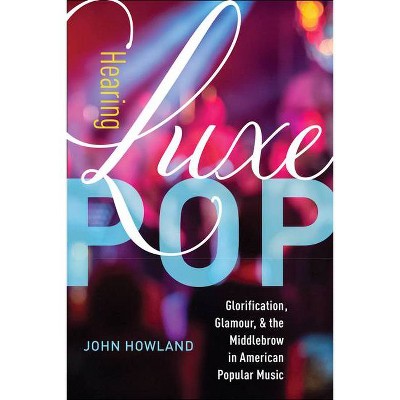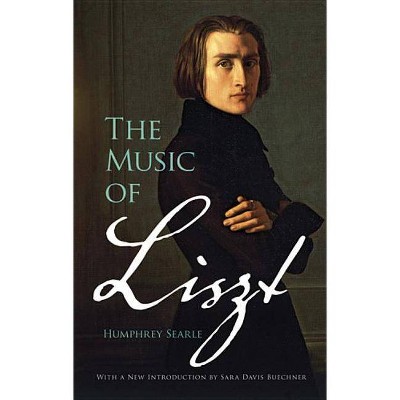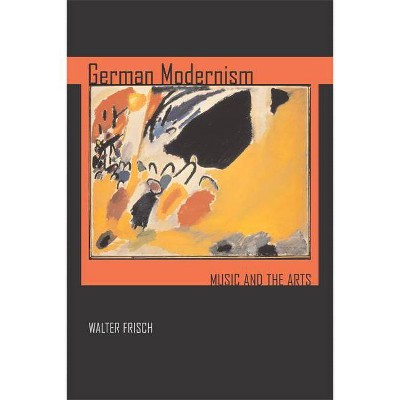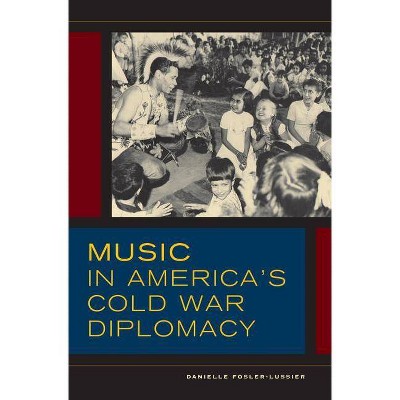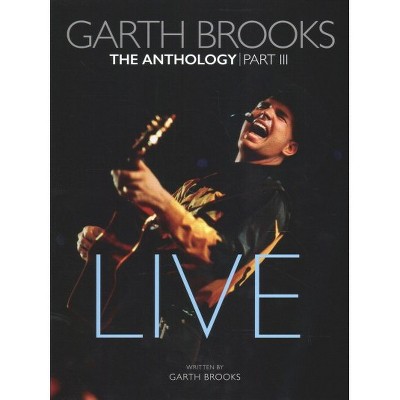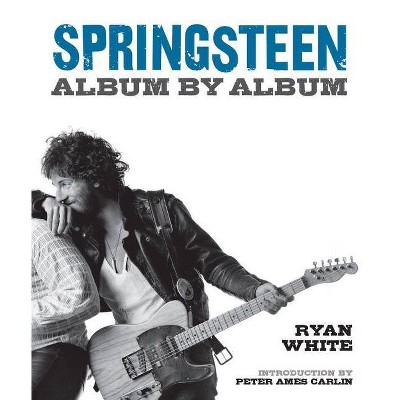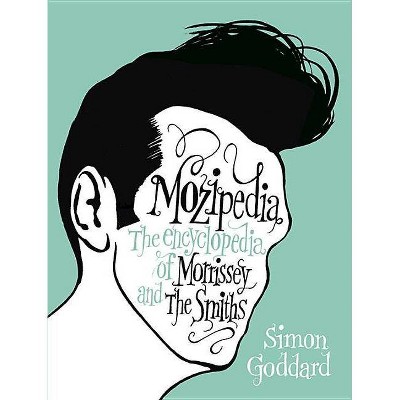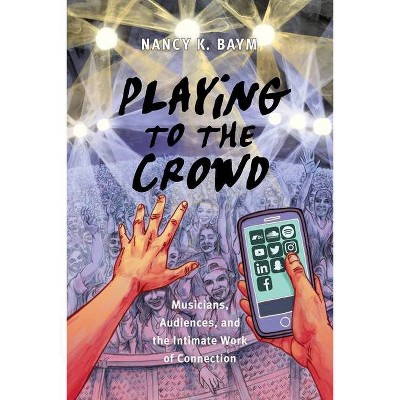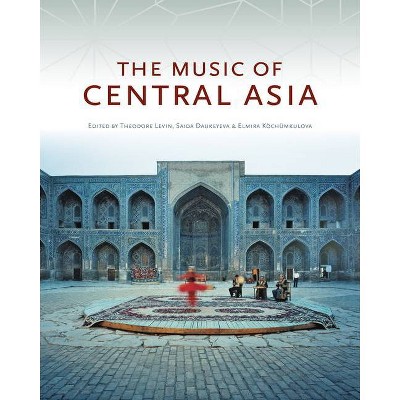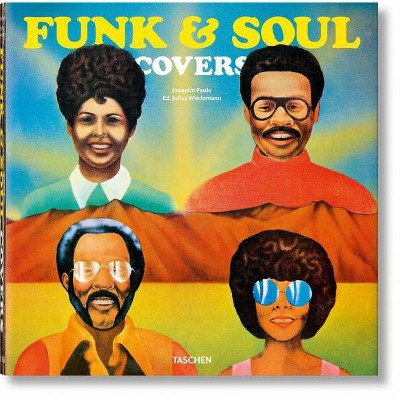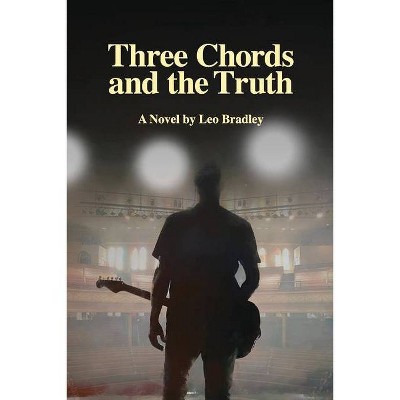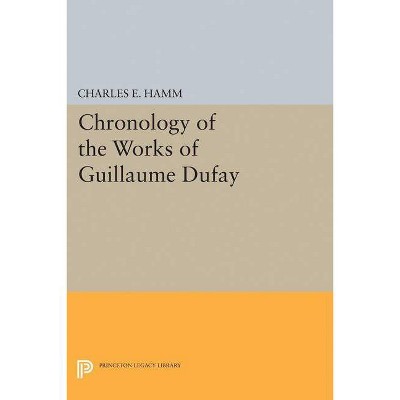Music and the Elusive Revolution, 12 - (California Studies in 20th-Century Music) by Eric Drott (Paperback)
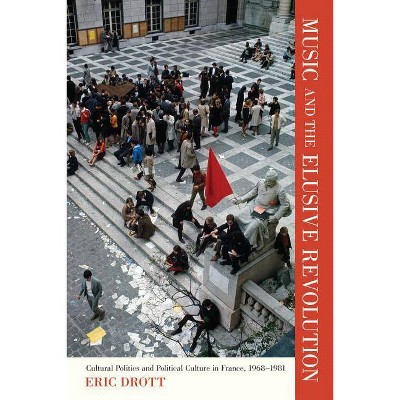
Similar Products
Products of same category from the store
AllProduct info
<p/><br></br><p><b> About the Book </b></p></br></br>"Eric Drott's fascinating "Music and the Elusive Revolution: Cultural Politics and Political Culture in France, 1968-81" reminds us how music of all types serve as sensitive barometers of social and political currents of change. His rich body of research presents an egalitarian approach to contemporary music studies, and complements other recent scholarship that similarly focus on music and political movements during the 1960s. Drott invites us into the heart of 1968--into the institutions, and onto the streets--and reveals what this cultural revolution means for cultural politics today. An impressive, important first book by an elegant and insightful writer." <BR>--Amy C. Beal, author of "New Music, New Allies: American Experimental Music in West Germany from the Zero Hour to Reunification" <P><BR>"Fear not: Eric Drott's "Music and the Elusive Revolution" is not yet another rehearsal of the ubiquitous "music-and-politics" trope. It is vitally important for understanding the fragile alliances forged between music and French politics in the heady days of 1968, and the ways in which those alliances inflected subsequent musical practice and discourse. But it is more than that. Grounded in the assertion that musical genre mediates political expression, Drott's richly textured analysis of five such musical-political alliances is revelatory in both content and methodology. It is a must-read for those interested in the events of 1968 and their fallout, and a model for writing about the intersection of music and politics in any era." <BR>--Joy H. Calico, author of "Brecht at the Opera" <P><BR>"Eric Drott's vivid account of the impact and aftershocks of the May 1968 "evenements" upon music and musical life in France is an essential contribution to our understanding of recent musical history. Drott explores the central role of musical genre in mediating political expression, through a sequence of brilliant studies of the "chanson," free jazz, rock and avant-garde classical music. The discussion navigates deftly between evocative case study and crisply defined theoretical insight, and is illuminated throughout by a balanced appraisal of the era's idealism and ideological fault lines. "The Elusive Revolution" will be mandatory reading not only for those seeking a fuller understanding of French musical life in the 'long 1970s', but for anyone with an interest in the relationship of music and social change." <BR>--Robert Adlington, editor of "Sound Commitments: Avant-garde Music and the Sixties" <P> <P> <P><BR><p/><br></br><p><b> Book Synopsis </b></p></br></br>In May 1968, France teetered on the brink of revolution as a series of student protests spiraled into the largest general strike the country has ever known. In the forty years since, May '68 has come to occupy a singular place in the modern political imagination, not just in France but across the world. Eric Drott examines the social, political, and cultural effects of May '68 on a wide variety of music in France, from the initial shock of 1968 through the "long" 1970s and the election of Mitterrand and the socialists in 1981. Drott's detailed account of how diverse music communities developed in response to 1968 and his pathbreaking reflections on the nature and significance of musical genre come together to provide insights into the relationships that link music, identity, and politics.<p/><br></br><p><b> From the Back Cover </b></p></br></br>"Eric Drott's fascinating <i>Music and the Elusive Revolution: Cultural Politics and Political Culture in France, 1968-81</i> reminds us how music of all types serve as sensitive barometers of social and political currents of change. His rich body of research presents an egalitarian approach to contemporary music studies, and complements other recent scholarship that similarly focus on music and political movements during the 1960s. Drott invites us into the heart of 1968--into the institutions, and onto the streets--and reveals what this cultural revolution means for cultural politics today. An impressive, important first book by an elegant and insightful writer."<br /><br />--Amy C. Beal, author of <i>New Music, New Allies: American Experimental Music in West Germany from the Zero Hour to Reunification</i><br /><br /><br /><br />"Fear not: Eric Drott's <i>Music and the Elusive Revolution</i> is not yet another rehearsal of the ubiquitous "music-and-politics" trope. It is vitally important for understanding the fragile alliances forged between music and French politics in the heady days of 1968, and the ways in which those alliances inflected subsequent musical practice and discourse. But it is more than that. Grounded in the assertion that musical genre mediates political expression, Drott's richly textured analysis of five such musical-political alliances is revelatory in both content and methodology. It is a must-read for those interested in the events of 1968 and their fallout, and a model for writing about the intersection of music and politics in any era."<br /><br />--Joy H. Calico, author of <i>Brecht at the Opera</i><br /><br /><br /><br />"Eric Drott's vivid account of the impact and aftershocks of the May 1968 <i>événements</i> upon music and musical life in France is an essential contribution to our understanding of recent musical history. Drott explores the central role of musical genre in mediating political expression, through a sequence of brilliant studies of the <i>chanson</i>, free jazz, rock and avant-garde classical music. The discussion navigates deftly between evocative case study and crisply defined theoretical insight, and is illuminated throughout by a balanced appraisal of the era's idealism and ideological fault lines. <i>The Elusive Revolution</i> will be mandatory reading not only for those seeking a fuller understanding of French musical life in the 'long 1970s', but for anyone with an interest in the relationship of music and social change.<br /><br />--Robert Adlington, editor of <i>Sound Commitments: Avant-garde Music and the Sixties</i><br /><br /><br /><br /><br /><br /><br /><br /><br /><br /><p/><br></br><p><b> Review Quotes </b></p></br></br><br>"A vivid documentary."--Arnold Whittall Emeritus, King's College London "Oxford Journal" (9/18/2012 12:00:00 AM)<br><br>"An impressive work of admirable erudition."-- "H-France Review Of Books" (4/12/2012 12:00:00 AM)<br><p/><br></br><p><b> About the Author </b></p></br></br><b>Eric Drott</b> is Associate Professor of Music at the University of Texas.
Price History
Price Archive shows prices from various stores, lets you see history and find the cheapest. There is no actual sale on the website. For all support, inquiry and suggestion messages communication@pricearchive.us
